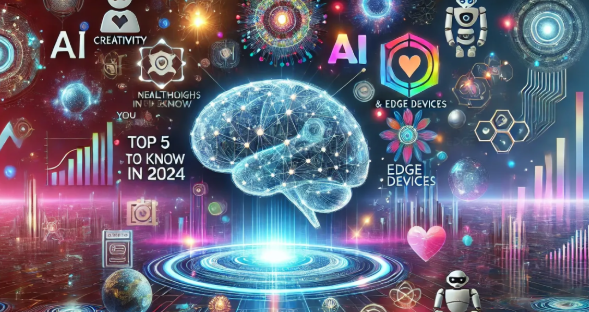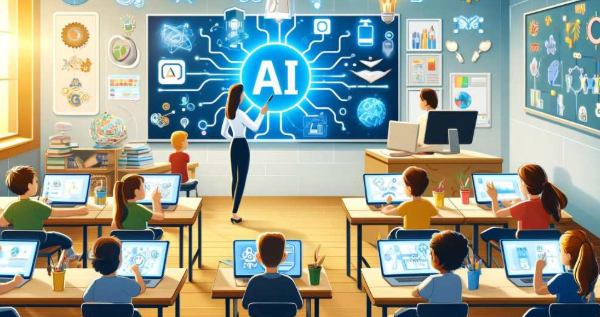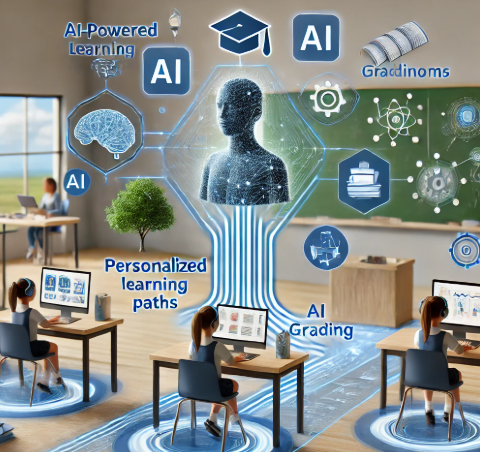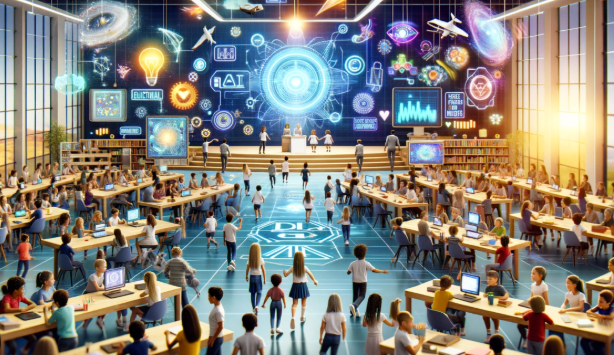Artificial Intelligence (AI) is reshaping the landscape of education by transforming how teaching and learning take place. Its impact can be seen across classrooms, administrative systems, and student experiences. From improving efficiency to personalizing learning, AI is setting new standards for educational development.
1. Personalized Learning
AI has enabled educators to shift from a one-size-fits-all approach to a more personalized learning experience.
Systems can now adapt lessons to suit individual learning speeds, preferences, and capabilities, enhancing student performance and satisfaction.
2. Enhanced Student Engagement
Interactive AI-powered platforms such as virtual tutors, gamified learning apps, and intelligent chatbots are helping to make education more engaging.
These tools encourage active participation and make learning enjoyable and interactive.
3. Support for Teachers
AI assists teachers by automating tasks like grading, creating lesson plans, and monitoring student progress.
This saves time and allows educators to focus more on teaching and providing personal support to students.
4. Improved Accessibility
AI has improved access to education for students with disabilities and those in remote areas.
Speech recognition, text-to-speech, translation tools, and adaptive technologies make learning materials accessible to all.
5. Early Identification of Learning Challenges
AI systems can analyze student behavior and performance data to detect learning difficulties early.
This allows educators to provide timely support and intervention, reducing dropout rates and improving outcomes.
6. Efficient Administration
AI is streamlining administrative tasks such as admissions, scheduling, and communication.
This improves efficiency within educational institutions and enhances the overall user experience.
7. Global Reach and Scalability
AI-driven platforms offer scalable solutions that can reach thousands of learners simultaneously.
This makes it possible to offer quality education to students worldwide, regardless of geographical location.
Conclusion
The impact of AI in education is profound and multifaceted. It is enhancing learning experiences, empowering teachers, and making education more inclusive and efficient. As AI continues to evolve, its role in shaping the future of education will only grow stronger.







Leave feedback about this